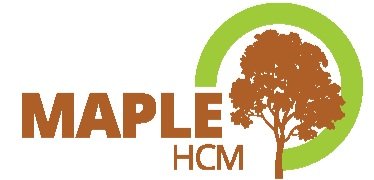
Frequently Asked Questions
About
MAPLE-HCM
1. What are my responsibilities in the clinical trial?
Trial participants who participate in the clinical trial will be responsible for visiting their clinical trial site for screening, trial treatment visits, and follow-up appointments. During the clinical trial period, trial participants will be required to visit their clinical trial site for at least 11 clinic visits. You will be asked to provide biological samples (such as blood or urine) and undergo procedures that might be different from a regular medical examination. This study will involve physical examinations, vital sign measurements, and tests to see how your heart is working. Any additional responsibilities and clinical trial duration will be explained by the clinical trial physician.
Your participation will involve at least 11 visits to the research site and the study will last about 34 weeks (8 months). Over the entire study, you’ll have:
Echocardiograms (one at each visit)
Cardiopulmonary Exercise Tests (CPET) (one at Screening and one at Week 24)
Blood draws (approximately 2 per visit)
You will also have the option to participate in the following:
Optional Genetic sub-study: (blood sample collected as part of a study visit blood draw)
Optional Blood Collection for Future Testing: (blood sample collected as part of a study visit blood draw)
Optional HCM Participant Experience Sub-study (available to US sites and English Speakers): one entry and one exit telephone interview and electronic surveys at each visit.
2. Can I leave the clinical trial after I start?
Yes, you may withdraw consent and choose to no longer participate in the clinical trial at any time.
3. Does this clinical trial offer travel reimbursement?
Yes, trial participants may qualify for reimbursement related to clinical trial visits. Trial participants should let their clinical trial physician know if they require assistance.
4. How do I get started?
Please complete the online form to learn more about the clinical trial. Based on your responses, a representative will contact you with further information and next steps about the MAPLE-HCM clinical trial. We also encourage you to visit www.clinicaltrials.gov (NCT05767346) for more information about this clinical trial.
Participation in a clinical trial is an important decision that is properly considered between the trial volunteer, the treating physician, and the clinical trial site investigator. There are many factors the physician and clinical trial site investigator will take into consideration to determine if participating in a clinical trial is appropriate.
About Clinical Trials
1. What is a clinical trial?
A clinical research study (also called a clinical trial) is a medical study that helps to answer important questions about an investigational drug – these include studying whether an investigational drug has any beneficial effects in treating a certain condition and what the potential side effects are. All medications must be tested in a clinical research study before they can be approved and prescribed to patients.
2. Why are clinical trials conducted?
Clinical trials are conducted to answer research questions and to help researchers learn if a certain investigational drug is safe and effective. The main questions the researchers want to answer are:
BENEFITS
Being in this study may not help you directly. But your participation in the study may benefit other people in the future by helping us learn more about your medical condition and develop drugs to help other patients with oHCM. After completing this trial, you may have the opportunity to enroll in an extension study where all patients receive aficamten, if you qualify.
POSSIBLE SIDE EFFECTS
The most common side effects observed in other research studies with aficamten were dizziness, headaches, and nausea. The most common side effects occurring in people who have taken metoprolol are tiredness, dizziness, feeling cold, and diarrhea. You may have side effects while in this study. Researchers do not know all the side effects that could happen. Contact the research site on the back of this brochure for more information.
3. Why participate in a clinical trial?
Participating in a clinical trial is a voluntary opportunity, and thus, it is always up to the individual interested in participating to decide if they would like to do so. People participate in clinical trials for different reasons, some of which may be:
They have not experienced improvement of the condition after using the currently approved drug(s)
They want access to a new type of drug even if it is not guaranteed to be better or as good as already available drugs
They want to contribute to the development of a new drug for others with a similar disease
4. What is a placebo and why is it used?
A placebo is a substance designed to look like the investigational drug but contains no active ingredient. Clinical trials will use a placebo to test the safety and effectiveness of an investigational drug. Researchers learn from comparing results of the placebo to the actual investigational drug.
